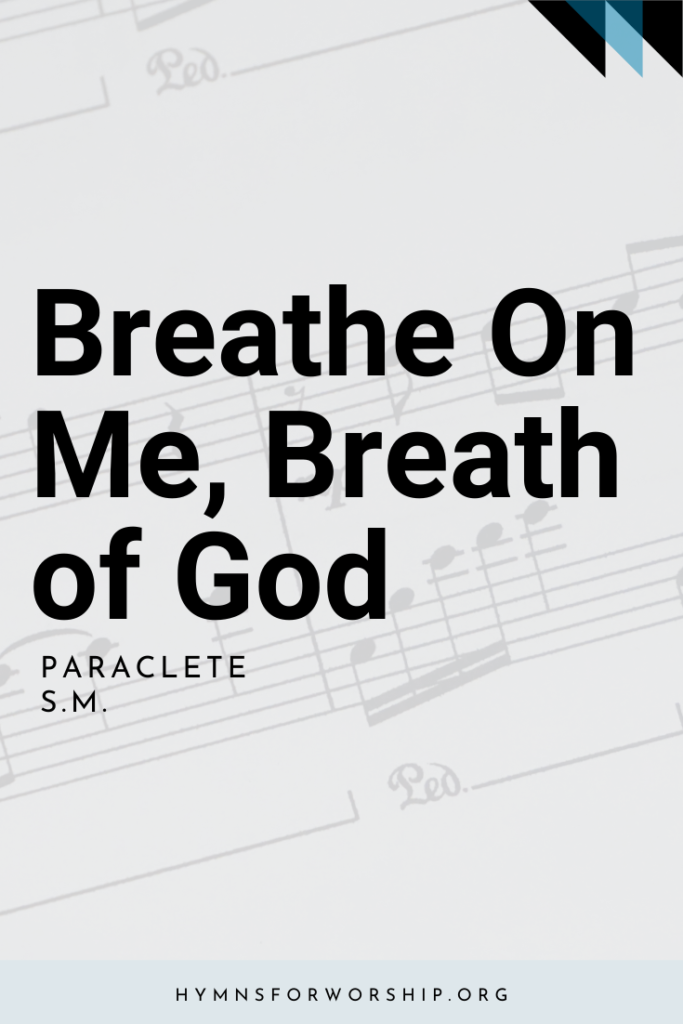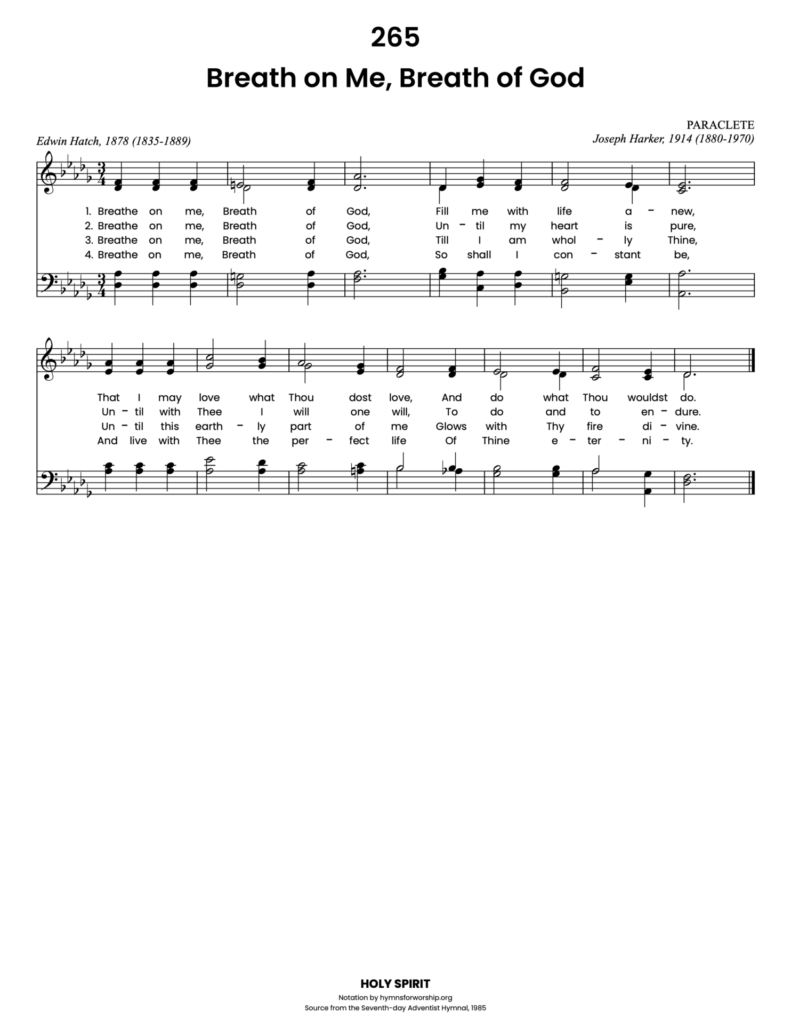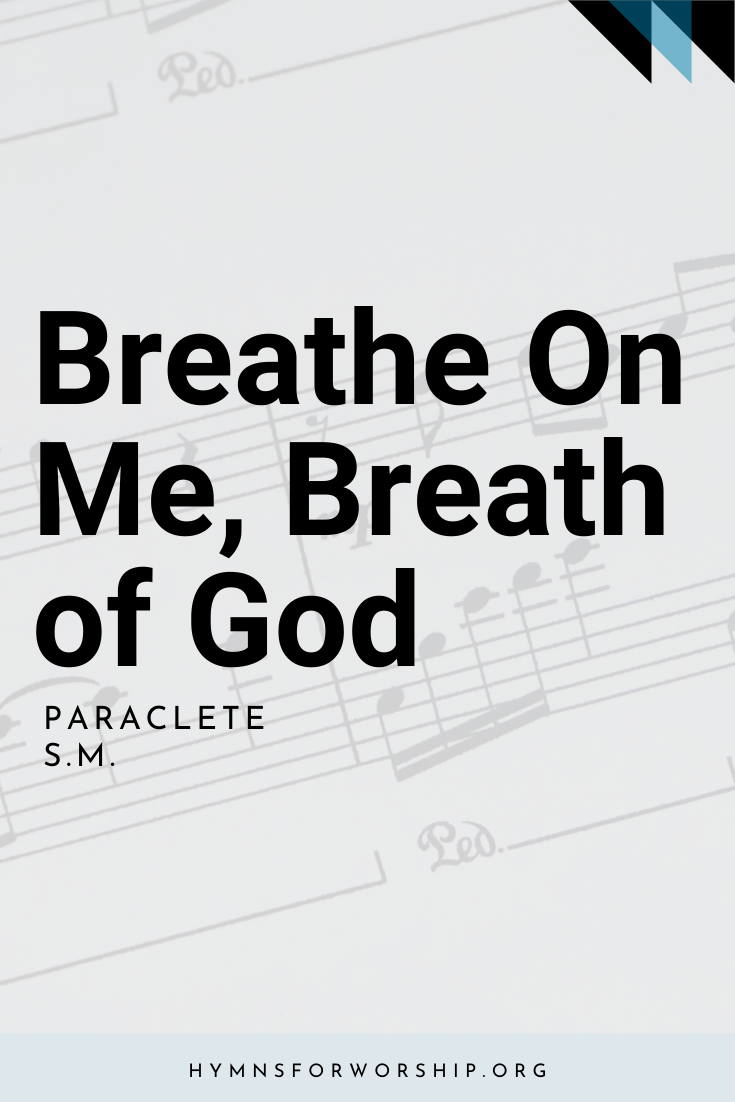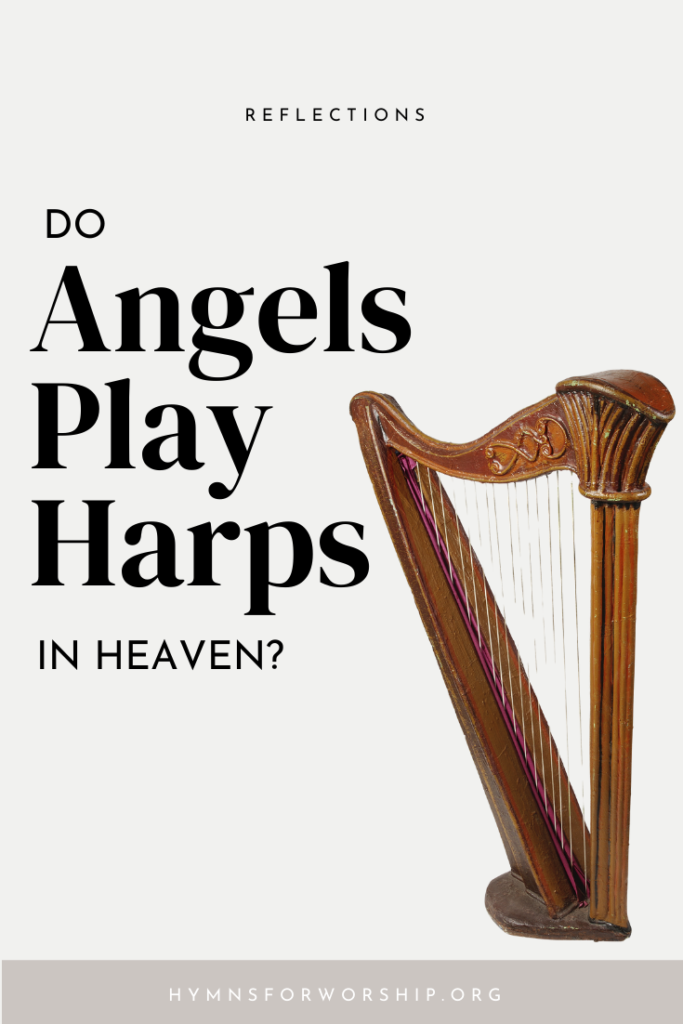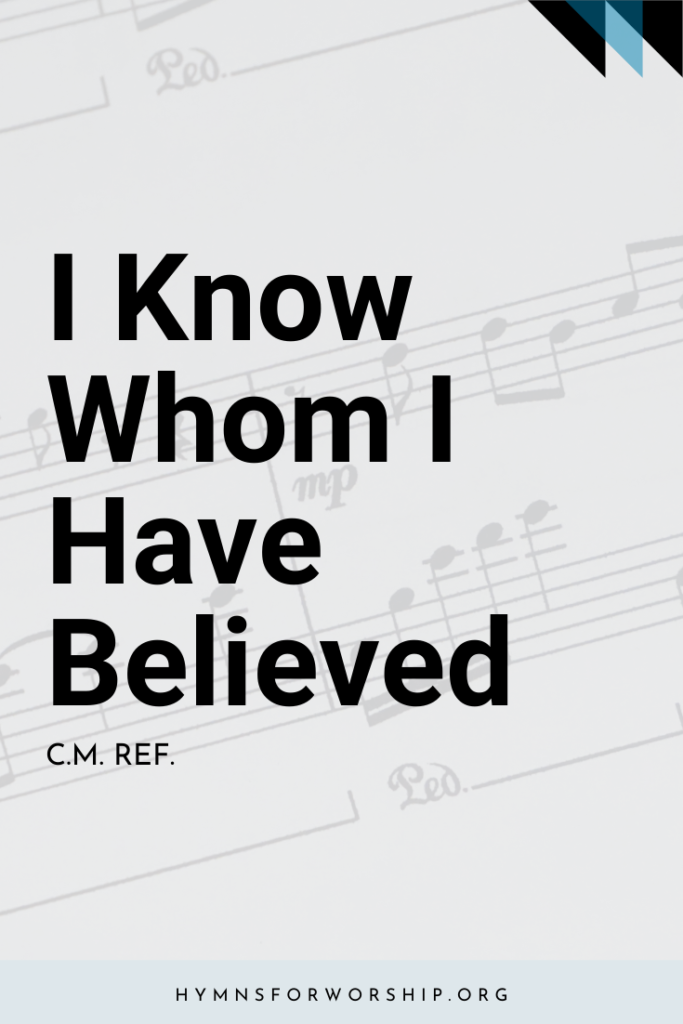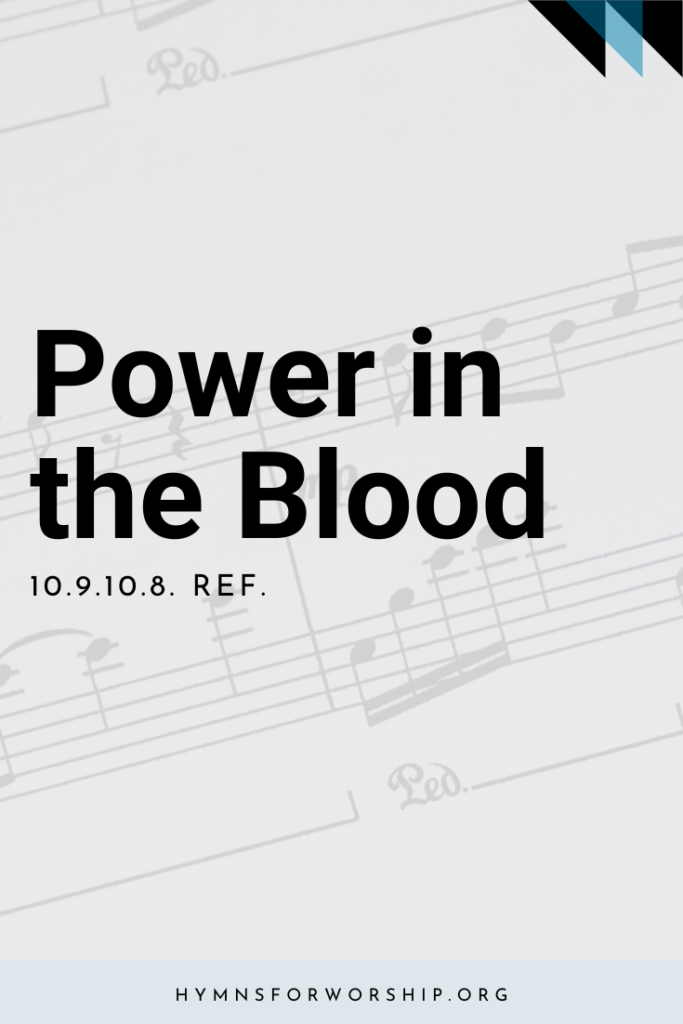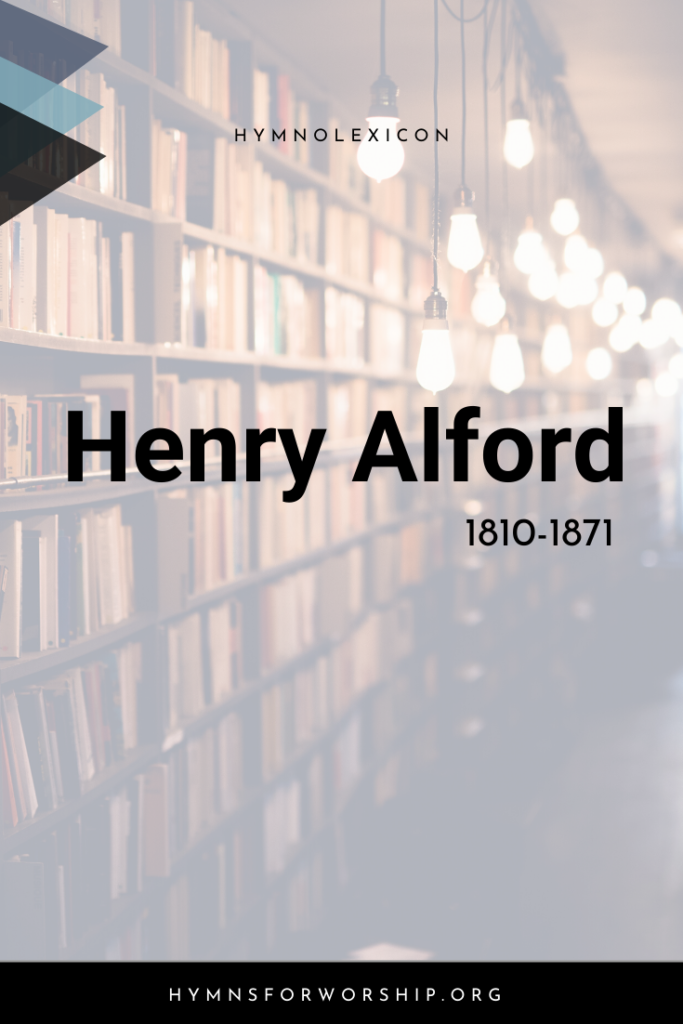In a small booklet entitled “Between Doubt and Prayer,” printed privately in 1878, Edwin Hatch included his four-stanza hymn as one for ordination. The six words that begin each stanza recall the words of Jesus to His disciples when He appeared to them in the evening of the day of resurrection: “He breathed on them, and saith unto them, Receive ye the Holy Ghost” (John 20:22). A slight change has been made in stanza 3, line 2, which originally read “Blend my soul with Thine.” Then for the theological reasons the fourth stanza, second line, has been altered from “So shall I never die” to “So shall I constant be,” which also makes a better rhyme! The hymn has proved quite popular after its first appearance in a hymn book in 1886. The Congregational Psalmist hymnal.
Hatch was born in Derby, England, on September 4, 1835, of Nonconformist parents. However, he enjoined the Church of England in 1853 and studied at Pembroke College, Oxford. He graduated in 1857 and in 1859 entered the ministry in the East End of London, where he stayed for three years. Then he was professor of classics at Trinity College, in Toronto, Canada, and later rector of a high school in Quebec. In 1867 he returned to England as vice principal of St. Mary’s Hall, Oxford. In 1880 he was Bampton lecturer, dealing with early church organization, and in 1883 became rector of Purleigh in Essex. In 1884 he became Reader in Ecclesiastical History at Oxford, which position he held until his death on November 10, 1889, at Headington, Oxford. He was a deeply religious profound scholar; the University of Edinburgh awarded him an honorary D.D. degree in 1883.
PARACLETE was composed by Joseph Harker, who was born March 5, 1880, in Newcastle-upon-Tyne, Northnumberland, England. He loved the deeply spiritual words of this hymn and wrote the tune to suit them in 1914. The name is a transliteration of the Greek word for the Comforter (john 14:16). Harker was a Seventh-day Adventist minister, a poet, and a musician. His talents were used in the preparation of the hymnbooks used in the British field, Advent Hymnal, 1915; The Advent Hymnal (revised), 1928; and The New Advent Hymnal, 1952. The first two of these were also the official hymnbooks for the African mission fields of the British Union, and in Australia and New Zealand. To the latter hymnal he contributed four complete hymns, text, and tune; 10 other hymn texts; and 16 other hymn tunes. To SDAH he also contributed No. 543, SIMONSIDE. He was a composer, choir conductor, organist, music editor, musician, and a poet, and also a youth leader and gospel minister, a Christian gentleman “who made earth happy with his songs of heaven.” He died in Reading, England, on May 11, 1970.
